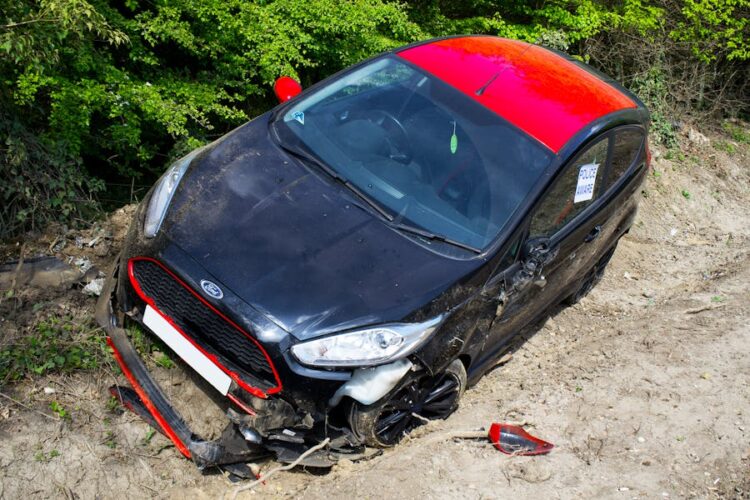Proving liability in a car accident caused by distracted driving can be a difficult but essential step for securing compensation for damages. Distracted driving includes anything that diverts attention from the road. Texting, eating, or adjusting the GPS are considered distracted driving. In Georgia, where Atlanta’s busy roads often see a high volume of accidents, holding a distracted driver accountable requires evidence, strategy, and often the assistance of a skilled personal injury attorney. Understanding the role of distracted driving laws can be crucial in building your case and protecting your rights.
What Counts as Distracted Driving?
Distracted driving can take various forms, and understanding these can help identify evidence that supports your claim. Georgia’s laws focus heavily on reducing distractions to ensure safer roads. Georgia has three types of distractions:
- Manual distractions: Taking hands off the wheel, such as texting or reaching for an object.
- Visual distractions: Taking eyes off the road to check a phone or look at another vehicle.
- Cognitive distractions: Thinking about something other than driving, like conversations or daydreaming.
In Georgia, the Hands-Free Law prohibits holding a phone while driving, making it easier to establish liability when this law is violated.
Gathering Evidence of Distracted Driving
Building a strong case involves collecting evidence directly linking the other driver’s distractions to the crash. Your lawyer will investigate the accident using multiple sources to uncover the truth.
Steps to prove distracted driving:
- Eyewitness Accounts: Bystanders or passengers may testify that they saw the driver using their phone or engaging in other distractions. Their accounts can provide valuable context to your case.
- Police Reports: Law enforcement officers may document signs of distracted driving, such as a phone or food near the driver’s seat. Obtaining this report is crucial for your claim.
- Phone Records: A personal injury attorney can subpoena the at-fault driver’s phone records to determine if they were texting, calling, or using apps at the time of the accident.
- Surveillance Footage: Nearby traffic cameras or security systems may have captured the incident, providing visual proof of distracted behavior.
- Vehicle Data: Modern cars often record driver behavior, such as abrupt braking or steering. These records may indicate distraction leading up to the crash.
The Role of Distracted Driving Laws in Georgia
Georgia’s Hands-Free Law, enacted in July 2018, establishes strict guidelines for using mobile devices while driving and is critical in proving distracted driving liability. The law prohibits drivers from holding or supporting a phone with any part of their body, aiming to reduce accidents caused by distractions. Violations of this law provide clear evidence of negligence and strengthen your case when seeking compensation after a car crash.
- No Handheld Use: Drivers cannot hold a phone for any reason while the vehicle is in motion. This includes making or answering calls, texting, or using apps.
- Limited Touch Interaction: Drivers may only use their phones through voice commands or one-touch activation for actions like navigation.
- Ban on Watching or Recording: Watching videos or recording video footage while driving is strictly prohibited, except for using a dashcam.
- Applies to All Drivers: The law applies regardless of age or driving experience, making it universally enforceable across all demographics.
Consequences of Violating the Law
Violating the Hands-Free Law results in penalties, such as fines and points on the driver’s license, which escalate with repeated offenses. First-time violators face a fine of $50 and one point on their license, while third-time violators incur a $150 fine and three points. These penalties not only deter unsafe behavior but also serve as evidence of fault in car accident cases.
How Distracted Driving Laws Support Your Claim
A driver breaking this law demonstrates negligence, as they didn’t meet the legal duty of care required on the road. Attorneys use this violation as a cornerstone of liability and negligence in distracted driving cases. Subpoenaed phone records, police reports, and eyewitness testimony can all show that the driver violated the Hands-Free Law, significantly strengthening your claim for damages.
Why Hire a Personal Injury Lawyer?
Handling a distracted driving case alone can be overwhelming. Personal injury lawyers have the expertise and resources to ensure no detail goes overlooked.
How lawyers help:
- They investigate thoroughly to uncover hidden evidence.
- They negotiate with insurance companies for fair compensation.
- They prepare a compelling case for court, if necessary.
Take Action After a Distracted Driving Crash
If you suspect a distracted driver caused your Atlanta car accident, don’t delay seeking help. It’s important to act quickly to ensure that evidence is preserved and your rights are secured. Contact a personal injury lawyer to discuss your case and strengthen your claim today.










